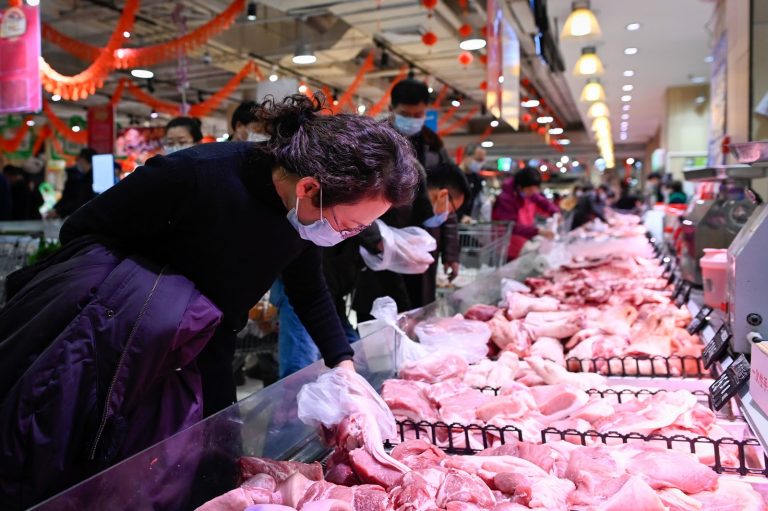China has admitted that its food supply does at times come under pressure. Recently the country has faced flood damage, insect infestation, and African swine fever that affected pork production, and seed shortages.
However, the Communist Party-run Global Times reported, “Despite media hype that China is in a looming food crisis, which is worsened by the epidemic, floods in southern China, and food imports, Chinese agriculturalists said the above factors would not lead to a food crisis in China, but that wasting food is an issue that deserves more attention.”
A Reuters report found that Chinese pork prices hit record levels after African Swine fever killed millions of pigs. In October 2019, the pork price was up to 53.79 yuan, equal to $7.59 per kilogram.
Breitbart found that last year “flooding during the summer months affected an estimated 55 million people, according to the Chinese government, and 27 provinces. As of August 2020, China had lost $1.45 billion in property, including crops, to flood damage. Flooding also resulted in indirect damage to crops through limiting transportation. The destruction of major roads and bridges left large amounts of crops to rot in the farms that had managed to harvest anything.”
The right-leaning outlet also reported that according to government-run media, worm and locust infestations killed some of the crops that survived the flooding and that wheat crops suffered the worst damage, followed by soybeans and corn.
Success
You are now signed up for our newsletter
Success
Check your email to complete sign up
A Global Times report also addressed problems with seed shortage, stating, “China needs to enhance the protection of seed quality resources and utilization, and enhance the construction of seed banks… China should improve technical research into seed sources.”

Jiao Shanwei, editor-in-chief of cngrain.com, a website specializing in grain news to the Global Times, said, “the central government’s special emphasis on national food security does not mean China has a ‘food crisis,’ but is a result of the unstable external political environment, making self-sufficiency and technology independence increasing[ly] important.” He boasted, “in the most extreme situation if China’s trade relations with these companies were halted, the most direct result would be a shortage of vegetables and a rise in food prices.”
The ‘Clean Plate’ campaign
The Chinese Communist Party (CCP) has decided to pin China’s food supply crisis on wastage, rather than lowered production. Last year, Chinese leader Xi Jinping began a “Clean Plate” campaign to encourage thrift and shame food-wasting.
“Experts say the world indeed faces a food shortage, but for China, the real threat to food security comes more from food wastage than epidemic or floods,” the Global Times claimed.
According to Global Times, the “Clean Plate” campaign started in 2013, discouraging people from indulging in extravagant feasts and receptions. Its current 2.0 version will make a wider call for the public to minimize food waste, with propaganda in restaurants to discourage ordering excessive food. State media has also banned popular Korean-style “mukbang” videos, which feature people overeating, sometimes to the point of sickness.
Follow us on Twitter or subscribe to our email list














